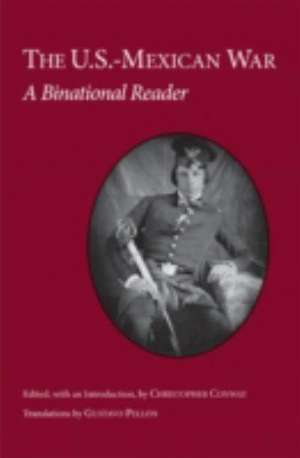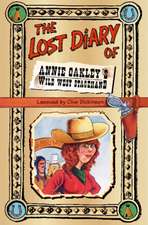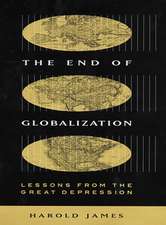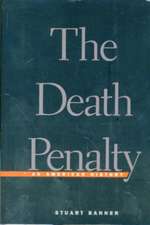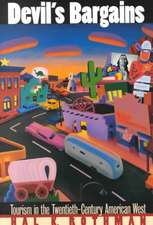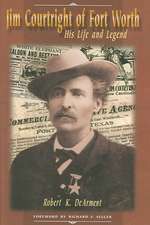The U.S.-Mexican War: A Binational Reader
Editat de Christopher Conway Traducere de Gustavo Pellonen Limba Engleză Paperback – 14 mar 2010
| Toate formatele și edițiile | Preț | Express |
|---|---|---|
| Paperback (1) | 114.69 lei 3-5 săpt. | |
| Hackett Publishing Company – 14 mar 2010 | 114.69 lei 3-5 săpt. | |
| Hardback (1) | 313.54 lei 3-5 săpt. | |
| Hackett Publishing Company – 15 mar 2010 | 313.54 lei 3-5 săpt. |
Preț: 114.69 lei
Preț vechi: 123.75 lei
-7% Nou
Puncte Express: 172
Preț estimativ în valută:
21.95€ • 22.98$ • 18.20£
21.95€ • 22.98$ • 18.20£
Carte disponibilă
Livrare economică 19 martie-02 aprilie
Preluare comenzi: 021 569.72.76
Specificații
ISBN-13: 9781603842204
ISBN-10: 1603842209
Pagini: 240
Ilustrații: b/w maps
Dimensiuni: 9 x 215 x 139 mm
Greutate: 0.33 kg
Editura: Hackett Publishing Company
Colecția Hackett Publishing Company, Inc (US)
ISBN-10: 1603842209
Pagini: 240
Ilustrații: b/w maps
Dimensiuni: 9 x 215 x 139 mm
Greutate: 0.33 kg
Editura: Hackett Publishing Company
Colecția Hackett Publishing Company, Inc (US)
Recenzii
Conway's judicious selection of primary sources--some fundamental, others lesser-known--affords readers valuable insight into a conflict that does not hold a prominent place in the United States' collective imagination. Especially noteworthy are Conway's efforts to fully portray the Mexican experience in the war through an examination of military operations, political affairs, daily life, gender, and popular culture. --Pedro Santoni, California State University, San Bernardino
What makes this edited collection truly distinctive is the large amount of material from the Mexican side. . . . There is really nothing like it available. . . . Pelln has done a beautiful job of translating the numerous Spanish-language excerpts that editor Conway has selected, and as a result this is the first reader on this topic to really articulate the complexity of the Mexican side of the conflict. The Introduction, chronology, and explanatory headnotes and footnotes throughout are all very clear and helpful. --Shelley Streeby, University of California, San Diego
Christopher Conway's excellent primary documents reader provides scholars and teachers interested in telling a transnational story of American imperialism and westward expansion with an invaluable collection of sources to tell that story. Conway delves deeply into Mexican sources, not to provide balance, but rather to reorient our perspective and understanding of the events in the nineteenth century that continue to shape the region. He uses the documents to expand the context of the war by taking an expansive view of the period he draws from and the types of documents used. Conway provides a concise overview of the events and politics leading up to the war, during the war, and its aftermath. This narrative and the subsequent documents follow along with the recent move established by historians to include the events in Texas as part of the war and American westward conquest. . . . All the Spanish language documents are presented in English thanks to Gustavo Pellon's excellent translations. The reader's strength comes from choosing both Mexican and American documents that paint a complex narrative of the diplomatic and political impact of the war in Texas and Mexico. The last sections of the reader begin to trace the broad impact of the war and the Treaty of Guadalupe Hidalgo. Conway chose documents highlighting the increased violence experienced by Mexican people on the American side after the treaty. These sorts of documents can also be useful in the context of understanding the formation of Mexican American identity. A section on culture and literature adds yet another dimension to our views of the war period by including poetry, songs, and other fiction from both nations. Overall, this is a handy resource for those teaching courses in American, Mexican, Texas, and Chicano/a history. --Raul Ramos, University of Houston, in Southwestern Historical Quarterly
What makes this edited collection truly distinctive is the large amount of material from the Mexican side. . . . There is really nothing like it available. . . . Pelln has done a beautiful job of translating the numerous Spanish-language excerpts that editor Conway has selected, and as a result this is the first reader on this topic to really articulate the complexity of the Mexican side of the conflict. The Introduction, chronology, and explanatory headnotes and footnotes throughout are all very clear and helpful. --Shelley Streeby, University of California, San Diego
Christopher Conway's excellent primary documents reader provides scholars and teachers interested in telling a transnational story of American imperialism and westward expansion with an invaluable collection of sources to tell that story. Conway delves deeply into Mexican sources, not to provide balance, but rather to reorient our perspective and understanding of the events in the nineteenth century that continue to shape the region. He uses the documents to expand the context of the war by taking an expansive view of the period he draws from and the types of documents used. Conway provides a concise overview of the events and politics leading up to the war, during the war, and its aftermath. This narrative and the subsequent documents follow along with the recent move established by historians to include the events in Texas as part of the war and American westward conquest. . . . All the Spanish language documents are presented in English thanks to Gustavo Pellon's excellent translations. The reader's strength comes from choosing both Mexican and American documents that paint a complex narrative of the diplomatic and political impact of the war in Texas and Mexico. The last sections of the reader begin to trace the broad impact of the war and the Treaty of Guadalupe Hidalgo. Conway chose documents highlighting the increased violence experienced by Mexican people on the American side after the treaty. These sorts of documents can also be useful in the context of understanding the formation of Mexican American identity. A section on culture and literature adds yet another dimension to our views of the war period by including poetry, songs, and other fiction from both nations. Overall, this is a handy resource for those teaching courses in American, Mexican, Texas, and Chicano/a history. --Raul Ramos, University of Houston, in Southwestern Historical Quarterly
